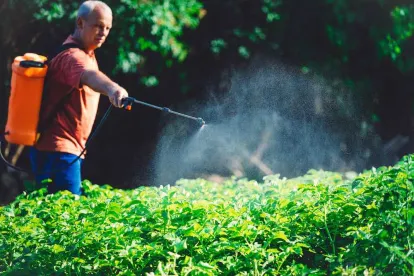More than five and a half years after the first Roundup lawsuits were filed, pharmaceutical company Bayer—which purchased Monsanto in 2018—is still in the process of resolving claims. On May 19, 2021, the company appeared before U.S. District Judge Vince Chhabria in San Francisco to request preliminary approval of a settlement deal with a total value of $2 billion.
The settlement would go to compensate plaintiffs in future claims against Roundup and its manufacturers, not the lawsuits that have already been filed. (Although a major settlement in June 2020 resolved about 75% of the 125,000 Roundup lawsuits Bayer was facing, new claims have continued to be filed through 2021, and some cases are scheduled to proceed to trial in July 2021.)
It could be some time before the judge decides whether or not to grant preliminary approval to this deal. In the meantime, though, consumers and especially Roundup users should pay attention to the evolving situation.
Setting the Stage for Settling Future Roundup Claims
If approved, the proposed settlement deal would apply to two different classes of plaintiffs, according to Reuters.
-
Class One: Any Roundup users who have been diagnosed with non-Hodgkin lymphoma and have not hired their own attorney (and so aren’t included among the number of currently filed claims). Under the proposed settlement deal, members of this class could receive as much as $200,000 in compensation.
-
Class Two: Roundup users not currently diagnosed with non-Hodgkin lymphoma who become diagnosed with the condition over a period of four years.
The proposed settlement deal would allow users of the herbicide to opt out of joining the class, in which case they would not be eligible for compensation from this fund but would retain their legal rights. Judge Chhabria expressed more concerns about how the deal would affect class two, Reuters reported.
Those concerns, according to Reuters, include:
-
How to notify members of a class
-
Whether potential members of the class would read a settlement proposal notice
-
Whether class members should agree to be bound by certain restrictions and requirements that would be imposed on them in future claims under this deal. Those restrictions are significant, since as Reuters reported, the proposed deal “prevents lawsuits for four years and bars class members from seeking punitive damages.”
Part of the point of this settlement deal attempt is to establish “a framework for resolving future claims,” but the day before the request for preliminary approval was held, the judge raised numerous questions and doubts as to whether this plan would accomplish that, Reuters reported.
The Suggestion of a Roundup Warning Label
One of the suggestions Judge Chhabria made was the addition of a warning label to Roundup products, according to Reuters. In fact, he went so far as to suggest the wording Bayer should consider using if it were to add such a warning to the label of Roundup herbicides.
The Reluctance (So Far) to Add a Cancer Warning Label to Roundup
Bayer has so far been opposed to this course of action. Previously, Bayer has made the case that “regulators prevented [the company] from adding a warning to the product’s label,” according to Reuters.
However, there is also the possibility that adding a cancer warning to the label could lead to a noticeable decline in sales of Roundup. Reuters reported that products related to glyphosate account for more than half of Bayer’s revenue from herbicides.
Why Is Roundup Still on the Market in the U.S., and Why Isn’t There a Cancer Warning Label?
Why Roundup is still on the market in 2021 without so much as a cancer warning label is one of the questions many plaintiffs, their families, and the attorneys representing them have been asking.
The International Agency for Research on Cancer declared Roundup’s active ingredient, glyphosate, a “probable human carcinogen” in 2015, but the evidence that led to this classification wasn’t enough to convince the Environmental Protection Agency. The EPA subsequently announced that it had determined the herbicide “unlikely to be a human carcinogen.”
In spite of this decision by the EPA, the Agency for Toxic Substances and Disease Registry (part of the U.S. Department of Health and Human Services) had noted in its toxicological profile for glyphosate the “positive associations between glyphosate use and selected lymphohematopoietic cancers.” This report also notes the “reported risk ratios greater than 1 for associations between glyphosate exposure and risk of non-Hodgkin’s lymphoma or multiple myeloma.”
Numerous countries across the globe have already announced plans to ban or restrict the use of glyphosate.
Major Award Upheld in Appeals Court
Bayer’s hearing to request preliminary approval of its proposed settlement deal came less than a week after an appeals court opted to uphold a major judgment against the company.
In a separate legal proceeding that occurred on May 14, 2021, Bayer had appealed the $25 million judgment awarded to plaintiff Edwin Hardeman before the 9th U.S. Circuit Court of Appeals in San Francisco. The appeals court sided with the plaintiff, marking the second Roundup cancer lawsuit judgment appeal Bayer has lost, according to Bloomberg. Bayer’s appeal of a third Roundup cancer lawsuit judgment is still pending.




 />i
/>i

